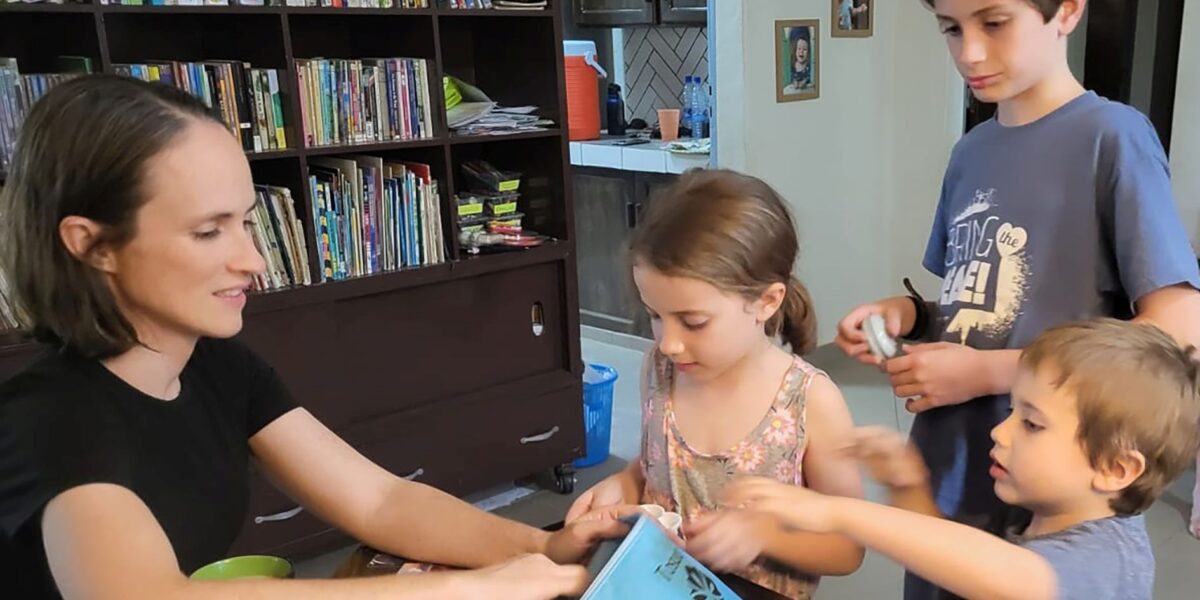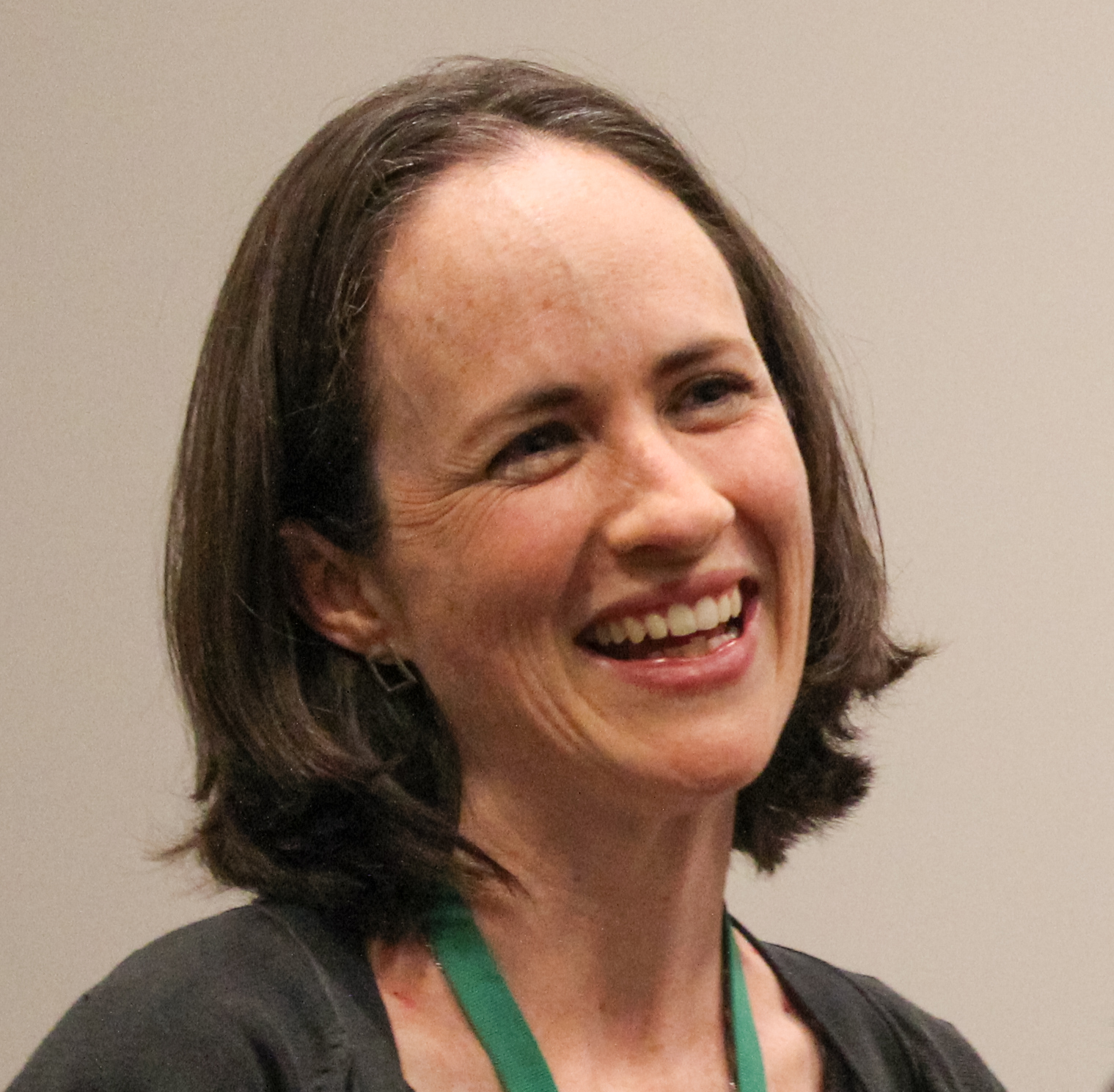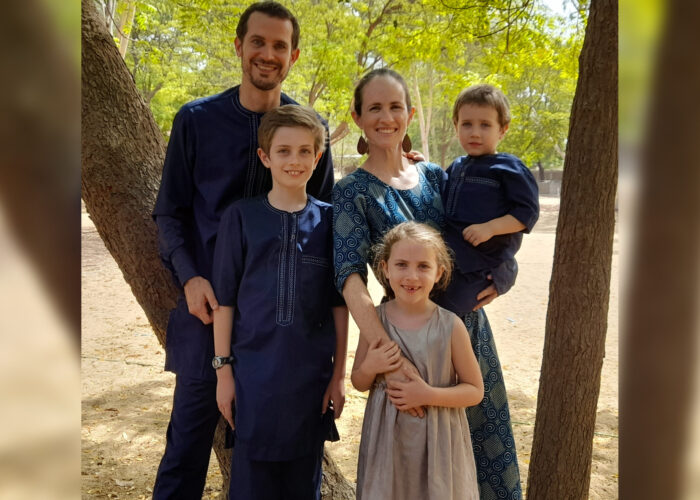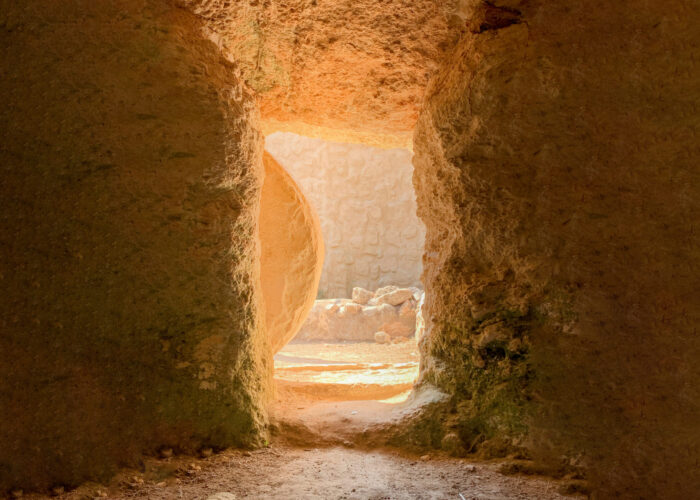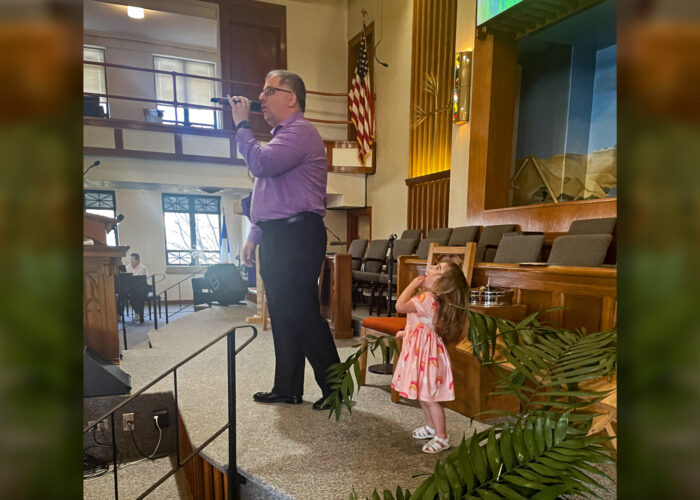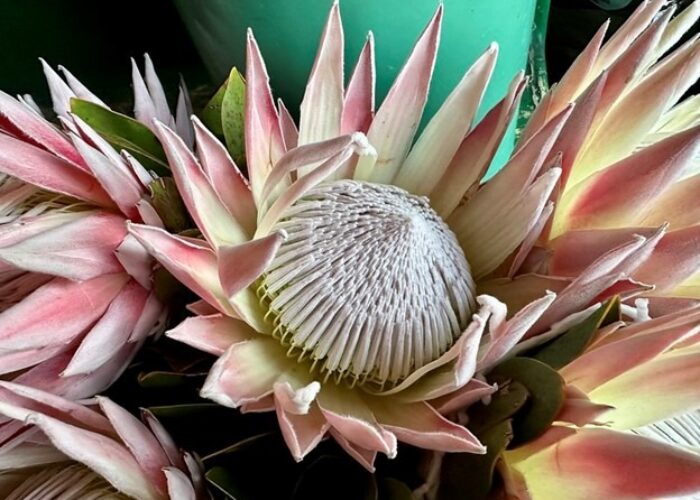Christy Harrison, serving in Chad through Eastern Mennonite Missions and Mennonite Mission Networks, finds her faith deepening, as she shares life with her community.
I was sweating in bed, as one does on a June night in Chad, when I began to hear rumbling noises. My first thought was thunder, but it didn’t follow the typical thunder-and-lightning pattern. It quickly grew louder and more frequent, blast after blast, until I was convinced that I was hearing bombs. Afraid of windows shattering and remembering the advice I had been given after multiple people were killed by stray bullets when elections were announced in May, I quickly woke the kids and our young mission intern from the United States.
I pulled everyone into our central hallway and shut all the doors. By this time, the explosions were unremitting, shaking doors and windows and pouring dust down on all surfaces. We held each other and prayed. I texted friends and family, asking for prayer. My husband, Peter Sensenig, was in Uganda, meeting with African leaders working for reconciliation in their contexts. He didn’t have internet access. My kids had questions. I had no answers, only that I loved them, and God was with us. We countered our fear with songs that assured us of God’s presence.
We would later find out that a military ammunition depot less than three miles away caught fire, causing the relentless earth-shaking explosions. But in the moment, we had been left to our best, or most frightening, guesses.
According to Meghan Good, in her sermon, “Praying with Your Eyes Wide Open,” the original problem depicted in Genesis and played out through history is that humans become convinced that God is not as good as God claims to be.
I would have thought that the Chadian people would be some of the first to doubt God’s goodness. We have witnessed our brothers and sisters in Christ endure political instability, sickness and death of loved ones, violence, and financial stress. We have also observed them turning to God, time after time, believing God will be for them, and that God will protect them and will walk with them through the valley.
The longer I live here, the more I need to know, in the deepest part of me, that God loves me, that God is for me and not against me. As a midwife, when a patient dies and I second-guess my actions, I cling to this unconditional love. When explosions go off around me and my kids shake in my arms, I need God to be our refuge. I still struggle with doubt and fear and shame, but my pursuit of God’s goodness has become relentless. I have learned from my Chadian brothers and sisters that it is the only thing that will sustain me.
If we want to experience healing in our image of God, Meghan Good suggests we take a great risk to love other people and ask God to show up.
- Have you experienced wounding in your view of who God is?
- Do you doubt God’s goodness?
- Do you wonder whether God is for you?
I invite you to continue this journey with us, to learn from our Chadian brothers and sisters.
- Is there some risk that God is asking you to take to love others?
- Can you ask God to show up in that risk?
Faith is not certainty. It is a hope-giving invitation to doubt the things you think you know—an invitation to give up being resigned—because God is not done until all is well.

